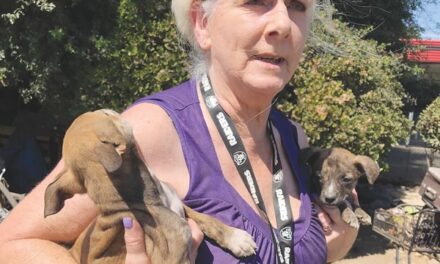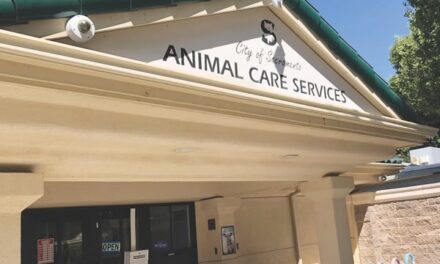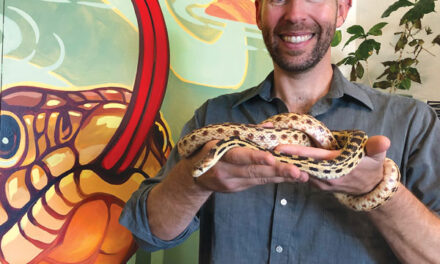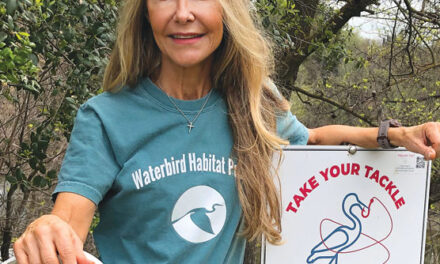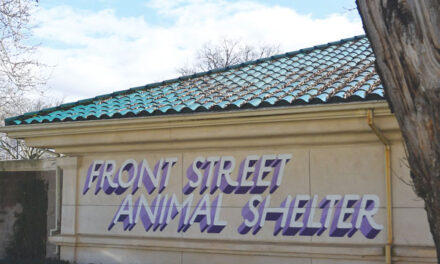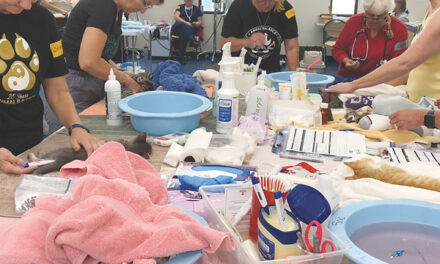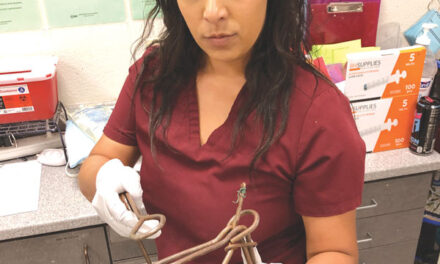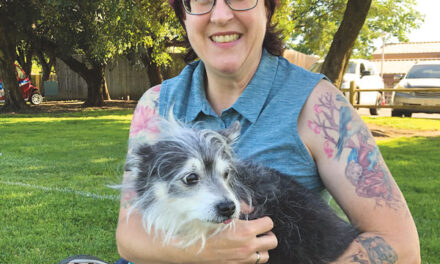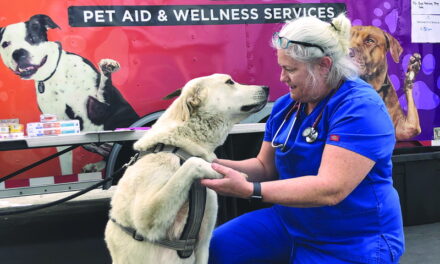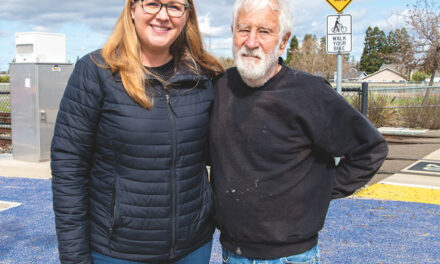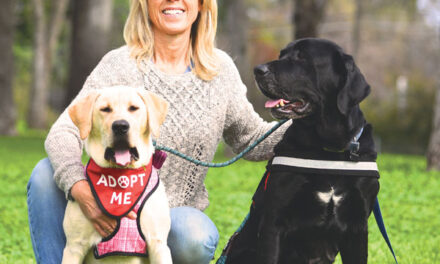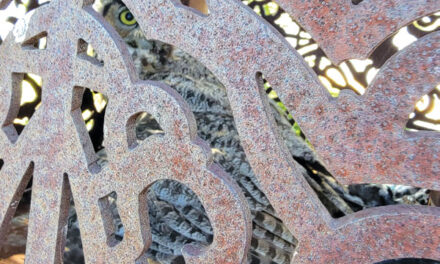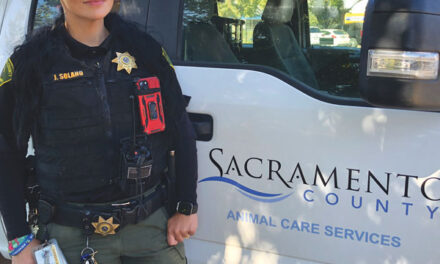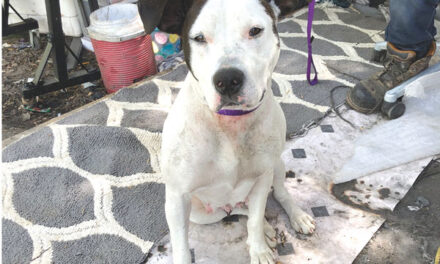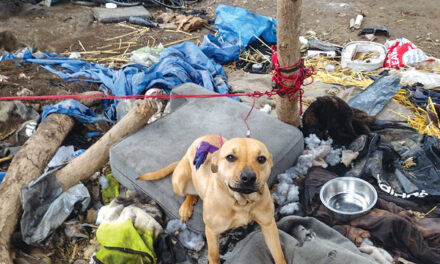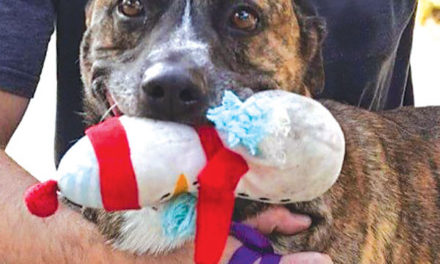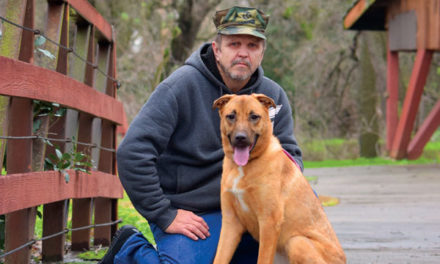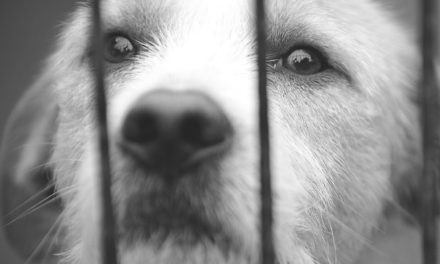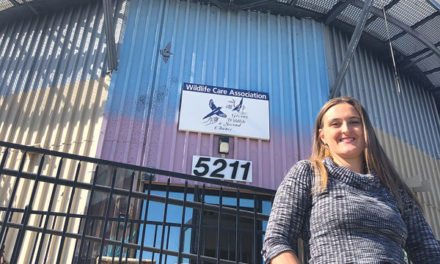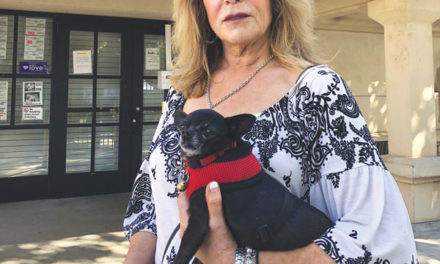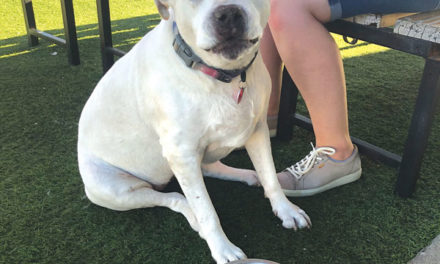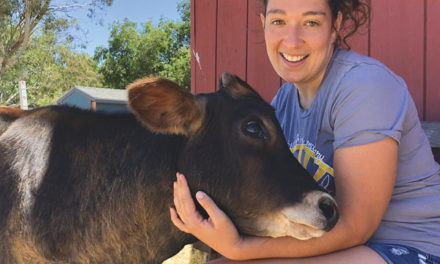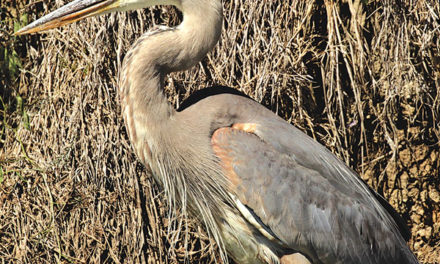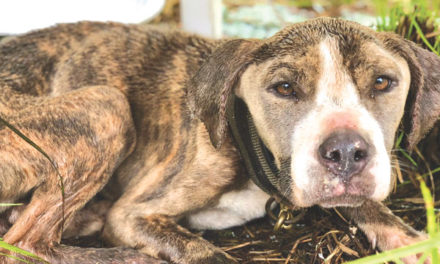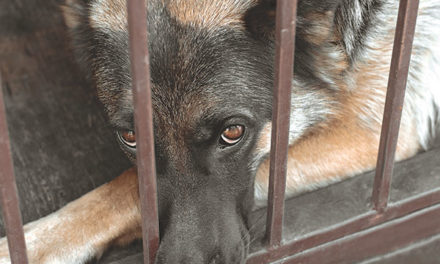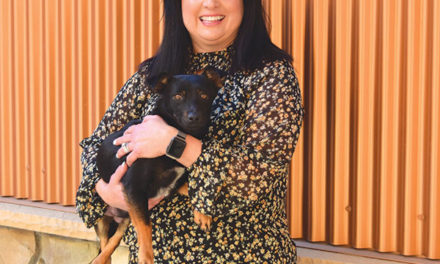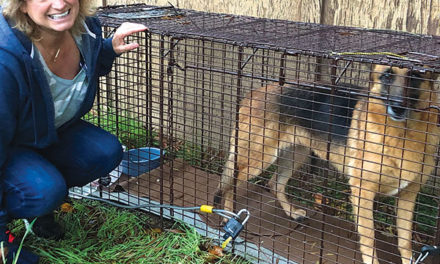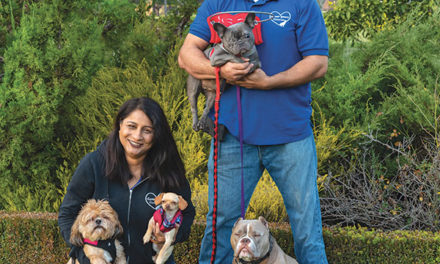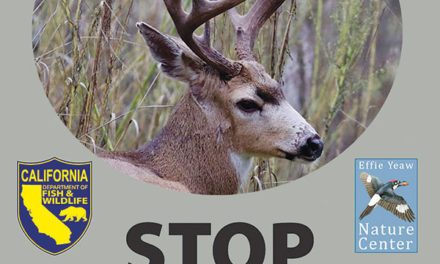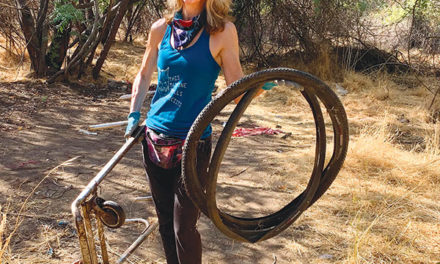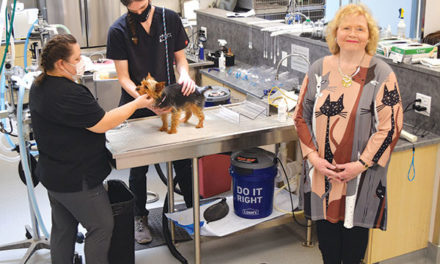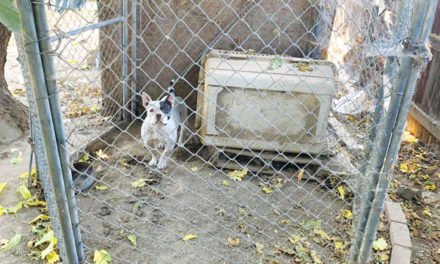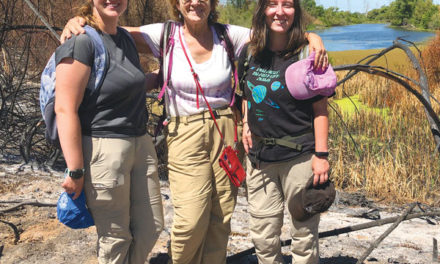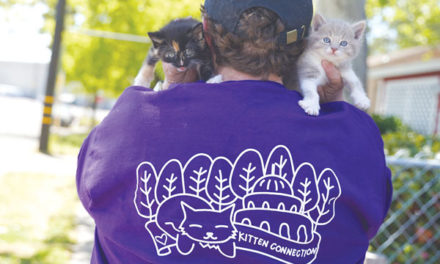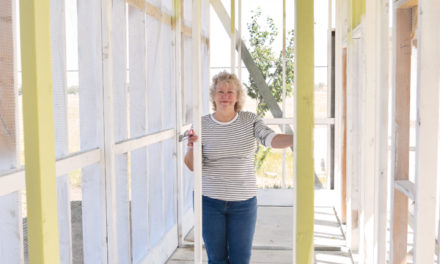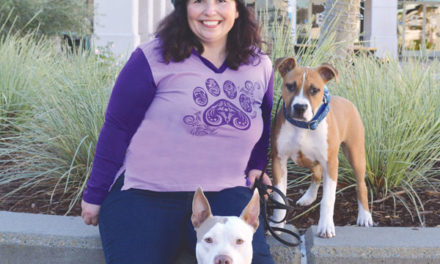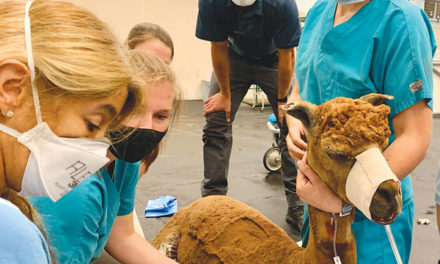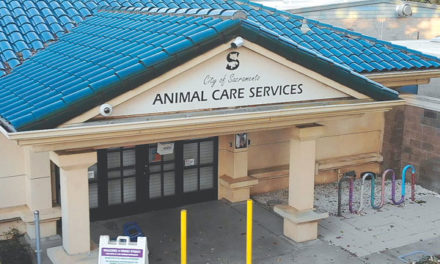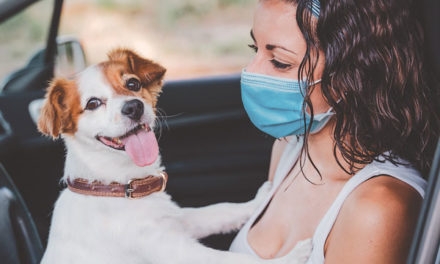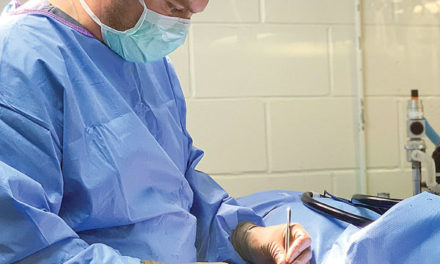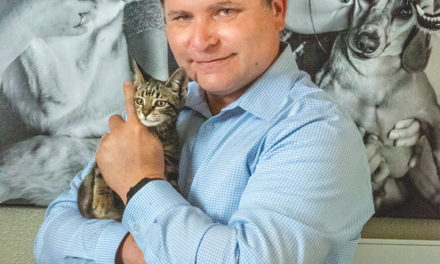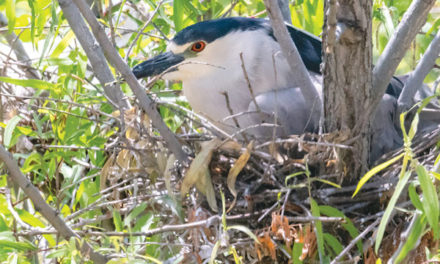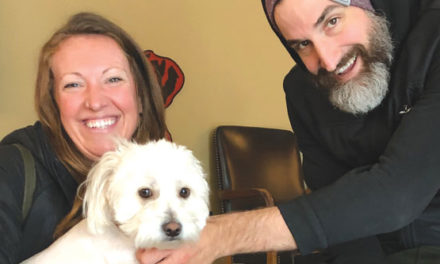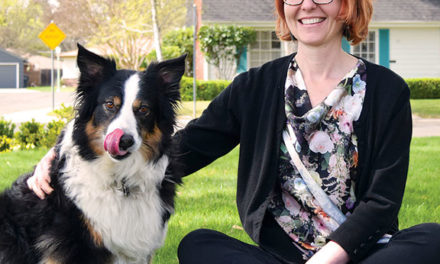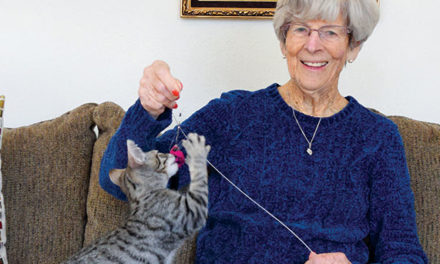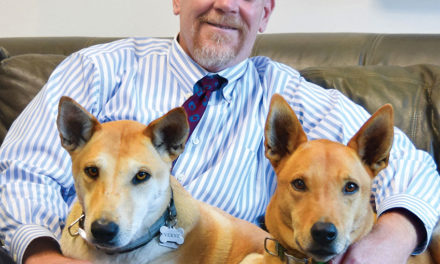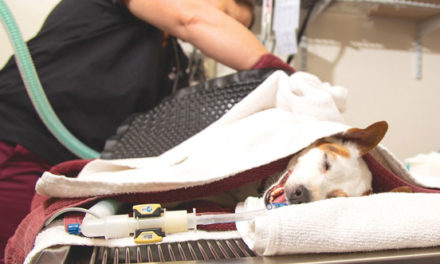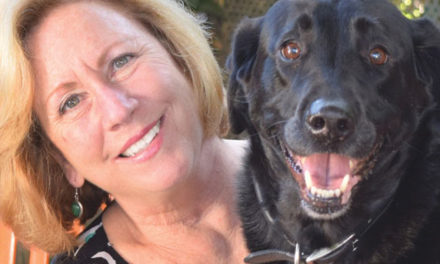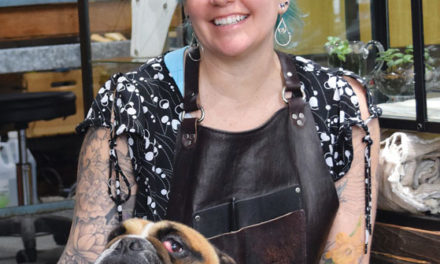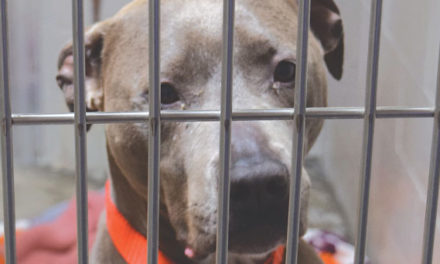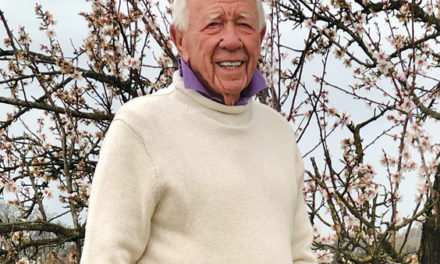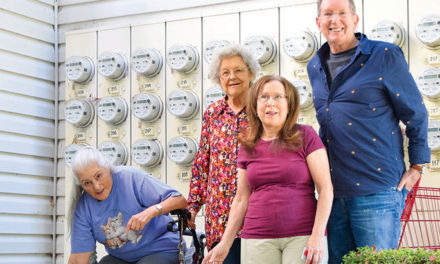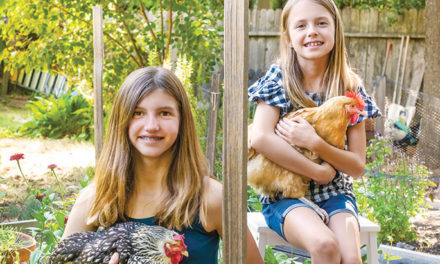What’s It Going To Take?
Lives lost while city shelter sits on grant money
By Cathryn Rakich
October 2025
Buttercup lives on a 3-foot tether in a homeless camp near Downtown. The tan, mixed-breed dog is 3 years old. She’s had three litters—24 puppies.
Buttercup is one of three dozen dogs who have lived and died in a lineup of tattered tents off Highway 160 over the last three years.
In that time, 155 puppies were born. Forty-nine died, 65 were sold or traded, 25 are gone.
“Gone means the puppies just disappeared,” Debbie Tillotson says.
For three years, Tillotson and friend Linda Massaro have provided food, water, bowls, bedding, harnesses and other necessities—at their own expense—to dogs kept by unhoused people.
Tillotson reports dogs have been hit by cars, poisoned and stolen. Two choked when their leads became tangled. Two died in a campfire.
Yet the city’s Front Street Animal Shelter has almost $84,000 in unspent state funds earmarked for spaying and neutering homeless community pets.
In 2023, Front Street received two $53,500 grants to spay/neuter animals of unhoused residents.
Shelter Manager Phillip Zimmerman spent the first grant on in-house spay/neuter, which he says is less expensive than using outside vendors.
Zimmerman anticipated using the second grant for surgeries at local high-volume spay/neuter clinics, such as Sacramento SPCA. But “they all had limited spay/neuter capacity, so we were having difficulty expending all of the funds,” he says.
The grant expired Dec. 14, 2023. Zimmerman received an extension to June 6, 2025—and another to June 30, 2026.
Coupled with a third $40,000 grant, Front Street has $83,943 in unspent funds to alter pets of homeless residents.
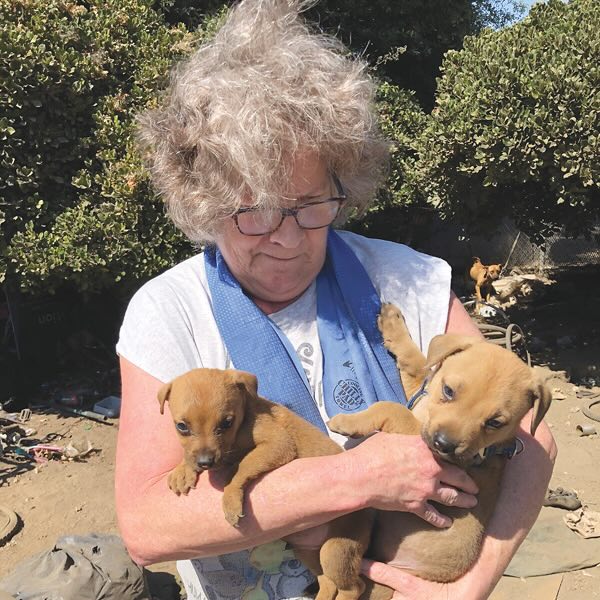
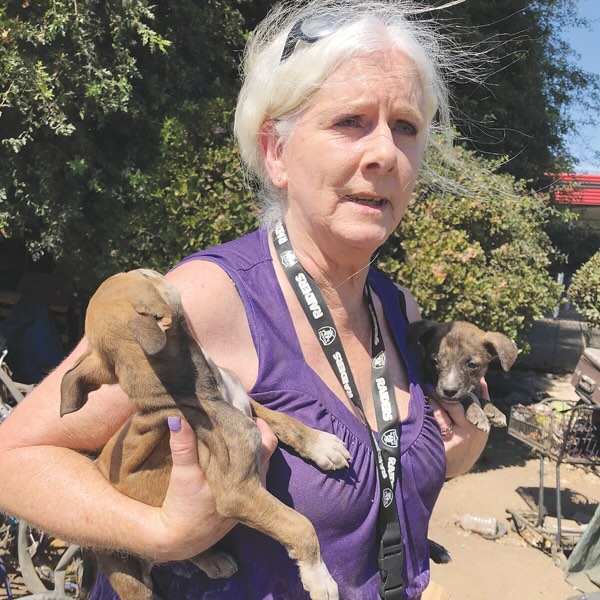
“Even if he feels his crew is less expensive to use than outside vets, wouldn’t a reasonable director work to increase the outreach, to increase the surgery numbers among the homeless?” asks attorney Hilary Bagley, a member of the city’s Animal Wellbeing Commission.
“He knows they are breeding like crazy and swapping puppies for drugs,” she says.
In 2024, Front Street received a fourth grant for $165,215 for intake prevention and foster programs. Again, the shelter “provided in-house spay/neuter services for these programs at a much lower cost,” Zimmerman says.
Not being able to use the funds at private clinics, the grant expired. Zimmerman received an extension to June 30, 2026. The leftover money is $26,195.
Unused spay/neuter funds from three grants—$110,138—sit in Front Street’s coffers.
And the animals keep coming.
In 2023, Front Street took in 4,116 stray dogs and 3,610 stray cats. In 2024, the shelter received 4,509 stray dogs and 3,947 stray cats.
So far this year, Front Street took in 3,217 stray dogs and 3,015 cats—and has killed 1,374.
“Front Street’s leadership sees every day how the lack of spay/neuter affects the pet population of our community,” Tillotson says. “It seems strange they have thousands of dollars earmarked specifically for spaying/neutering the dogs of the homeless and have not used it. Could it be that they really don’t care about animals of the homeless?”
Zimmerman says, “our organization and many others have had struggles with expending funds specifically related to spay/neuter because of the backlog of spay/neuter availability.”
A national high-volume MASH (Mobile Animal Sterilization Hospital), now used by Front Street and the county’s Bradshaw Animal Shelter, had limited availability at the time, Zimmerman says.
However, Bradshaw managed to spend a $200,000 grant on four MASH clinics in 2024.
What about low-cost mobile clinics, such as SNIP (Spay Neuter Imperative Project)? The mobile clinic has spayed/neutered nearly 100,000 animals throughout California.
“SNIP was not in compliance with the California Attorney General at the time and could not provide workers’ compensation proof to the city, which is a requirement,” Zimmerman says.
Earlier this year, Zimmerman, with support from Assistant City Manager Michael Jasso, called off a SNIP clinic arranged by local animal advocate Julie Virga with Fix Our Shelters, a nonprofit watchdog group.
“The city of Sacramento absolutely contracts with nonprofits ‘not in good standing’ with the Attorney General’s Office,” Virga says. Fix Our Shelters pulled records and found the city contracted with 16 delinquent nonprofits in 2024 and 2025.
In 2023, soon after Front Street received the first $53,500 grant, Virga arranged for the founder of Elevation Mobile Animal Spay & Neuter Clinic to assist the city shelter with altering “animals of the unhoused that are literally breeding out of control in our neighborhoods,” Virga says.
Zimmerman rejected the offer, citing an expired veterinary premise permit.
“The idea was to bring a contract team to Front Street,” Virga says. “Front Street already had a posted premise permit.”
Zimmerman still refuses the mobile clinic SNIP and help from Elevation.
For the unspent funds, Zimmerman is “hoping” to hold a MASH clinic and hire a contract veterinarian to perform more in-house spays/neuters.
Three years and hundreds of puppies later—what has taken so long?
Cathryn Rakich can be reached at crakich@surewest.net. Follow us on Facebook and Instagram: @insidesacramento.




